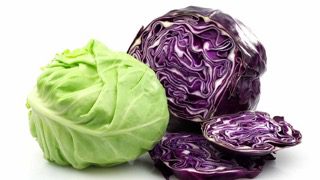

Cabbage is a nutritious snack for dogs that can improve their digestion and skin and coat quality. However, it’s important to limit their intake to avoid negative impacts on their thyroid gland functions.
Cabbage contains antioxidants and fiber that aid in digestion and is rich in sulfur, which can benefit a dog’s skin and coat. Additionally, cabbage can increase the production of enzymes that help fight cancer in dogs.
Excessive consumption of cabbage can be harmful to a dog’s thyroid gland due to the presence of thiocyanate. It can also cause flatulence or bloat in dogs.
To serve cabbage to your dog, chop it into small pieces and introduce it slowly to their diet. It’s important to serve it in moderation to avoid any negative effects.
Cabbage, also known as headed cabbage or white cabbage, is a nutritious vegetable that originates from the Mediterranean region. It is widely used in cooking and can be found in various dishes such as soups, stews, salads, and coleslaw. As for dogs, cabbage can be a healthy snack that benefits their digestion and skin and coat quality. However, it's important to limit their intake as excessive consumption can negatively impact their thyroid gland functions. Despite this, cabbage is affordable and easy to access in most supermarkets.
If you want to share some cabbage with your furry friend, chop it into small pieces and serve it in moderation. You can mix it with their regular food or serve as a standalone treat. Alternatively, you can try feeding them Brussel sprouts or broccoli, as they are also nutrient-rich vegetables that are safe for dogs to eat.
Some readers may be wondering how much cabbage is too much for their pets. The answer is that it varies depending on the individual dog's size and overall health. It's best to consult with your veterinarian to determine the appropriate serving size for your furry friend.
Have you ever given your pet cabbage before? We'd love to hear your experiences in the comments below. Always remember to feed your pets in moderation, and never hesitate to reach out to your veterinarian with any concerns.